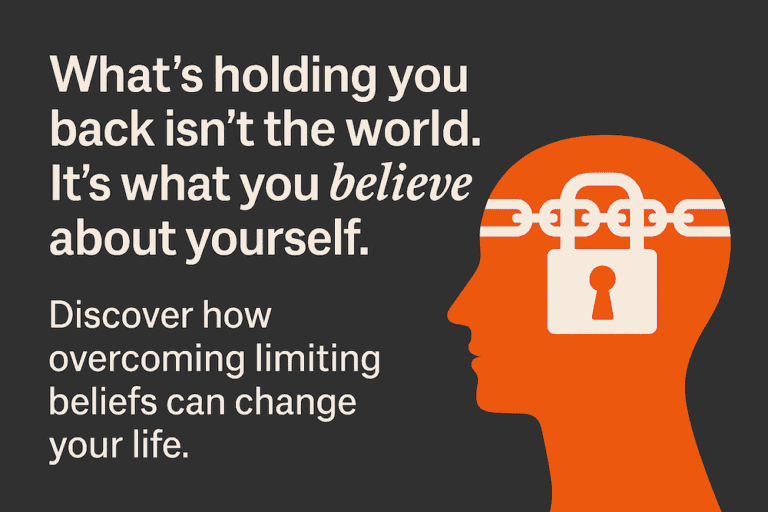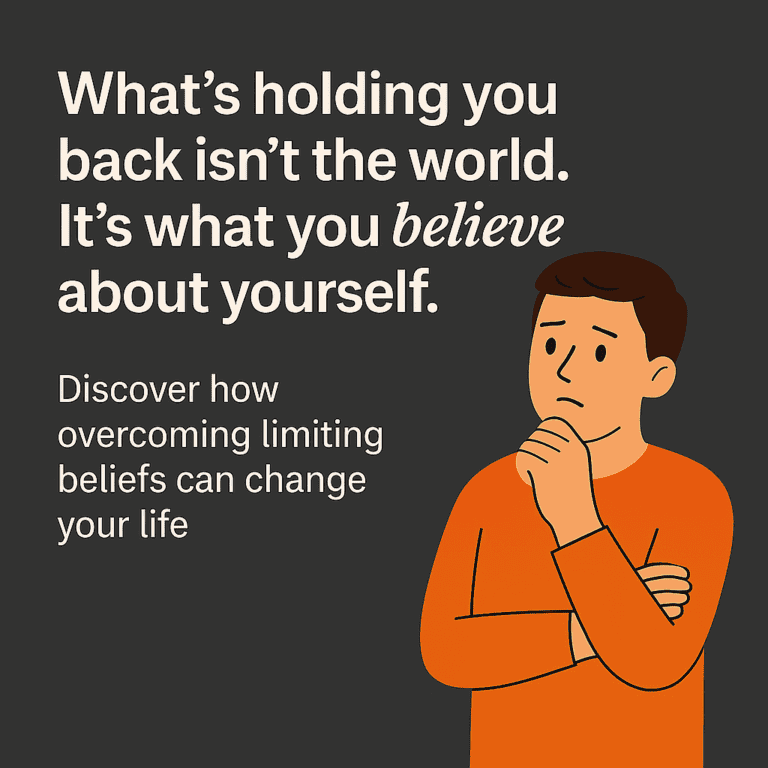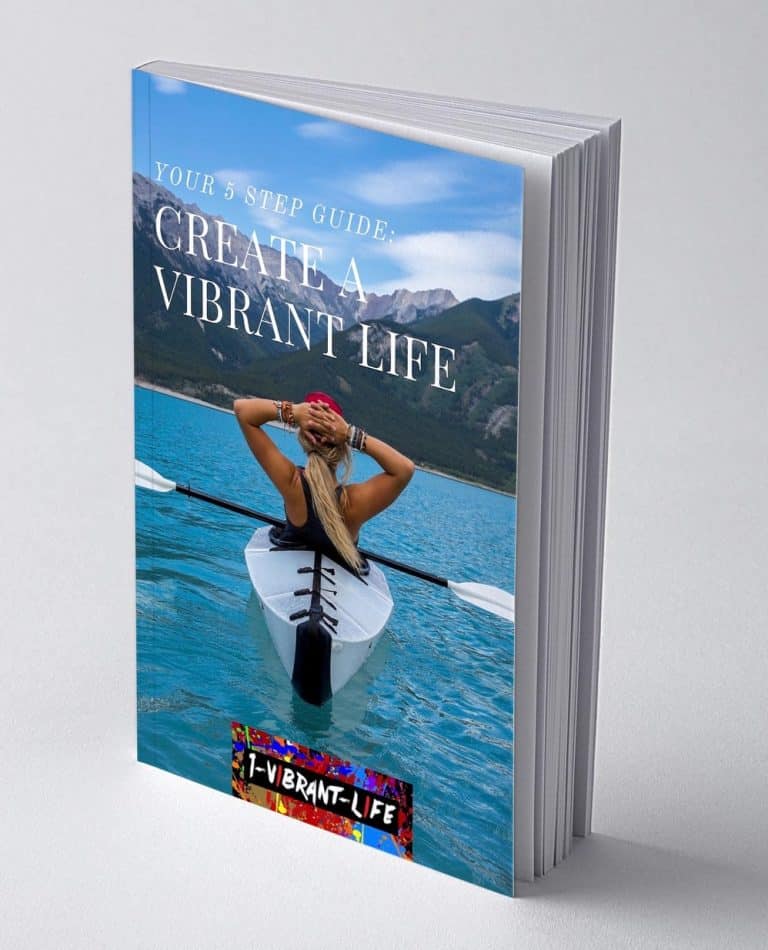Are You An Escape Artist? Recognizing Unhealthy Escapism
Do you rely on escapism as a distraction that can be creating unhealthy escapism? Are you capable of recognizing unhealthy escapism? Feeling somewhat trapped, and longing for escapism, after the confinement of COVID? It’s no surprise. Plenty of us are seeking escapism, looking to escape from reality, even briefly. Understandable, given the circumstances. But, it’s worth asking the question, are you, in fact, an Escape Artist? Read on to find out!

“When we’re deluded, there’s a world to escape.
When we’re aware, there’s nothing to escape.”
~ Red Pine,
Claire Law | September 16, 2020
Escaping the Daily Grind
What do we mean by escapism and can we actually recognize unhealthy escapism?
The dictionary defines escapism as “the tendency to seek distraction and relief from unpleasant realities, especially by seeking entertainment or engaging in fantasy.”
That definition of escapism points to the unpleasant realities that are a daily part of plenty of people’s existence.
And escapism through the distractions of alcohol, sex, Social Media, and even daydreaming is cheap and accessible, for many of us, most of the time.
A simple glance at the popularity of Game of Thrones shows us how readily people have embraced the escapism of fantasy, lived out vicariously through the small screen.
Sometimes, you just need to escape!
Indeed, the Escape Room adventures that have quickly become an entertainment experience of choice in the USA and elsewhere testify to the role escapism plays in popular culture.
The thrill and adventure of the race against the clock and the pretend imaginary threat of being locked in if you don’t escape in time stimulates our escapist tendencies.
For an hour, we leave the mundane behind as we submit to leaving reality behind and entering an escapist’s fantasy world. Literally.
Yet, it’s not a new phenomenon. Escaping back to nature, to a more wholesome time and landscape, free from the ravages of industrialization and the associated stress has been a pipe dream for many centuries now.
Some of us manage to carve out means to gratify the urge with weekend retreats to country settings.
Time being at one with nature in order to forget about the demands of the office. Others go further, to escape the mundane drudgery and join communes or religious communities detached from the city grind.
It’s not hard to explain away their choices as motivated by escapism. Almost a second life, or at least a second chance at life. A rebirth into a new way of being. A new reality.

eBook
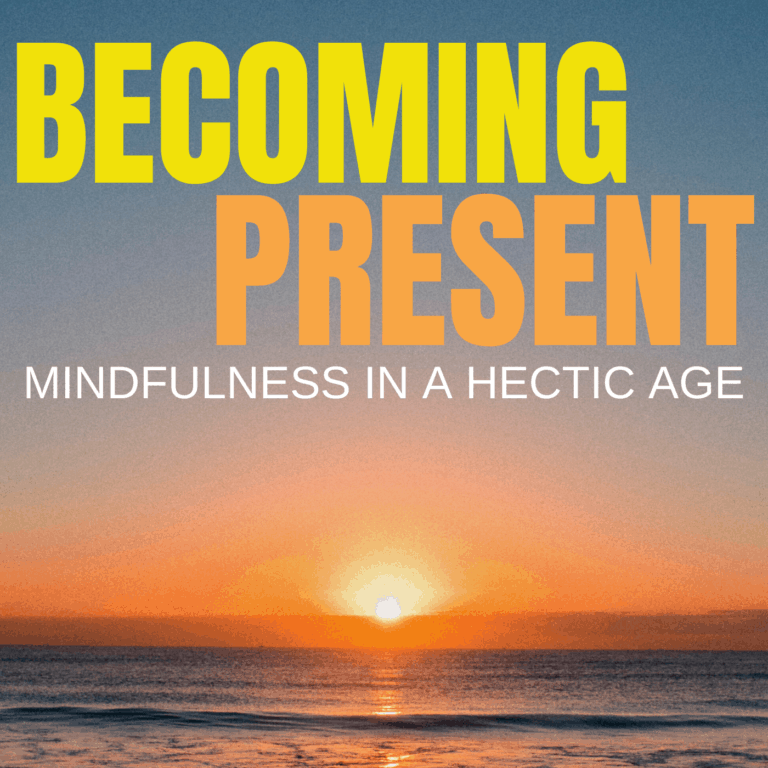
Audio eBook
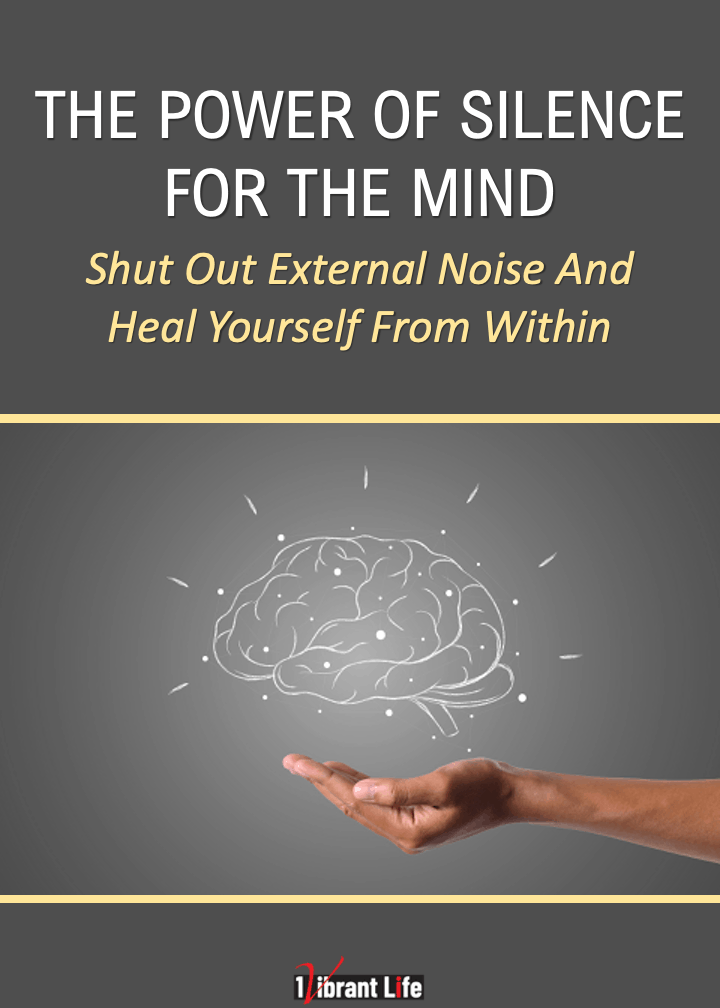
eBook
Three personal growth tools for you as a gift for visiting 1VibrantLife.com
An Altered State of Consciousness as Escapism
And, it’s that search for a new reality, an altered state of consciousness that leads many people to seek oblivion, escapism, and freedom from reality through drug use.
It can be easy to fall into the downward spiral of escapism, and not be able to recognize that our favorite diversion is becoming unhealthy.
We might label it an unhealthy form of escapism, yet narcotic trips and chemical-fueled adventures have been helping people escape for years.
Our taste for addictive psychoactive substances is attested to in the earliest human records [1]. Priests or shamans have ingested plants for millennia to induce states of dissociative trance, to escape the mortal realm and enter into a state of higher being.
Becoming something of a hipster’s must-have experience whilst backpacking, the South American Ayahuasca ritual is actually centuries old.
Drinking the ancient Amazonian concoction made from leaves of a local plant is serious stuff.
Shamans in the Amazon have been drinking it for centuries to tap into the spirit world.
The hallucinogenic visions and journeys of altered consciousness the drug induces have supported many a person to escape the confines of their lives and find healing from psychic wounds and past hurts.
Is that really so far away from junkies, desperate to escape the reality of living on the streets, hand to mouth?
Either way, escaping reality with drugs offers a quick fix way to find an escape from reality.
Yet, before too long, the effects wear off and the user faces that sudden sense of snapping back to reality, a reality that can include the prison of addiction.
Reality sucks. That is, until the escape into the next fix, then the next hit.
You cannot find any peace by escaping from human pain and suffering; You have to find peace and harmony right in the midst of human pain. That is the purpose of a spiritual life. ~ Dainin Katagiri 1928 – 1990

The Hypnotism of Scrolling and Shopping
The sober amongst us might be tempted to sit on their high horse, removed and above such base behavior.
Yet, there are other perhaps more subtle, socially condoned, and legal forms of escapism.
Social Media is one such example of escapism that‘s been widely embraced by the masses.
The scroll, scroll, scroll across the screen has hypnotic qualities. Consuming more and more content as we navigate, trance-like, the posts and ads algorithms have concocted for us.
Removing us from daily life and channeling our attention, our focus into the 2” by 4” screen of the smartphone encourages us to escape and submit.
The average North American spends over two hours each and every day escaping into the world of Social Media[2]. It can become an addiction in itself as people become hooked on the dopamine rush.
The fantasy, make-believe world of air-brushed images and powerful influencer marketing products promise to escape reality.
Which brings us neatly onto the escapism that comes through retail therapy. Shopping for a pair of Manolo Blahniks lets us buy into that world of shiny leather and patent perfection.
Where happiness comes wrapped in tissue paper and boxed neatly. Even if it’s just window shopping.
A girl can dream, right? And in that dream, that fantasy comes a heady escapism and move away from the mundane, with a price tag.
Which, if we’ve used the plastic, we can manage to ignore it until the credit card statement arrives, causing us to plummet back to reality with a bump. Ouch!

Trapped: Is Escape Possible?
However, longing for escape is not just a bit of harmless fun and leisure pursuit for some people.
For some, seeking escape is a real-life traumatic experience.
In June 2018, news channels around the globe reported on the efforts to rescue 12 boys and their football coach who were trapped inside caves in Thailand’s Chiang Rai province.
The group ended up trapped deep inside a cave after flooding meant they were cut off – trapped, without food, approximately 4km from the cave’s entrance.
After 18 days, the group managed to escape as they were all brought to safety.
Sadly, one of the rescue divers, Saman Kunan, perished in the recovery mission. And a similar accident in 2010 saw 33 Chilean miners survive a 69-day ordeal of being trapped underground.
Although these miners escaped to physical safety, many now suffer from psychological distress from this traumatic experience.
The psychological distress of the miners points us towards other forms of confinement people face.
Veterans returning from armed conflict face daily battles with the psychological effects of PTSD, trapped by the flashbacks of the horrors they witnessed.
It’s no wonder that some veterans seek to escape in any way they can: though alcohol, drug use, or even suicide: the ultimate escape.
Depression can also feel like a prison, with sufferers desperate to escape the low-hanging black cloud that pervades their day-to-day existence.
Sadly, many people in our world and in our country and community are trapped by poverty.
Some families in our area face the difficult choice of heat or eat – do they spend the limited money they have on either food and feeding the family or on heat: heating the house to stay warm?
It can feel like there is no escape and no hope for the future when you don’t have enough money to meet your basic needs.
The only respite is to dream of winning the lottery, escaping the trap and prison of poverty. Finding freedom and a way to escape the reality of poverty.
“We seek to escape the dark cave of a despondent mind by either dulling oneself mentally or through imaginative acts. One form of escapism is daydreaming.”
~ Kilroy J. Oldster,
Daydreaming our Way to a Better Future
So, can escapism be something that is life-enhancing?
We know that some forms of escapism are not good for our health.
But can escapism enrich our lives? Daydreaming is one form of escapism that seems to come naturally to us as humans.
Books, fantasy films, and role-playing games are the adult versions of the fantasy play children so readily engage in.
Certainly, children love to daydream from an early age. And there is evidence that it is part of healthy brain functioning.
Neuroscientists estimate that we spend between 15 and 50 percent of our waking hours daydreaming, escaping reality for brief yet significant periods of time.
Researchers now recognize that daydreaming is the mind’s mechanism for reviewing what we already know and imagining possible worlds[3].
Daydreaming, entering a fantasy world, helps us to feel alive, creative, and energetic.
Daydreaming also helps to hone our social skills: giving us space to imagine and envisage possibilities, play out scenarios, and practice interactions – all without the risk of rejection or failure.
Daydreaming allows us a safe escape, a safe retreat into endless possibilities.
We can even “re-write” the past in our daydreams and imagine a different ending, create a different narrative, a better conclusion, to a less than satisfactory reality.
That can really help to provide the closure and psychological completion, and processing of events that we have come to regret.
Whilst we can escape through daydreams, there is always the possibility of something else, something different.
Likewise, meditation and mindfulness offer a positive way to embrace escapism.
Emptying the mind of distraction offers an escape route to frantic minds, consumed by stress, rumination, and demands.
And it can lower our blood pressure as a result[4].
That’s a benefit that is more reality than fantasy, as are the various physical and mental health benefits of exercise.
For some people, pounding the streets or lifting weights takes them swiftly away from stresses and strains, offering an outlet for pent-up pressure.
Sports and exercise offer that dual reward of the psychological benefits of escapism with the physiological boost to our health.
Of course, when exercise begins to tip into obsession and avoidance of reality, then it’s no different from any other addiction.
It becomes another prison, another way in which we trap ourselves.
Another way we try to escape from relationship and connection, but by doing so, escape from our true sense of self.

Balance and Moderation
So, finding ways to escape the reality that is life-enhancing involves a willingness to embrace the reality that too much of a good thing is often harmful—everything in moderation.
But, certainly, a little sprinkling of escapism here-and-there offers potential and adventure in an otherwise mundane and sometimes terrifying world.
Terry Pratchett, the celebrated author of the fantasy Discworld novels, had a good take on the benefits of escapism, whilst also pointing out how escapism can take us away from things we really do need to tackle for our own good:
“Escapism isn’t good or bad of itself. What is important is what you are escaping from and where you are escaping to. – Terry Pratchett
The trick is making sure the daydream gives way to reality every once in a while. The escapism that leaves us renewed and restored, ready to tackle reality head-on.
The alternative of permanently escaping means the daydream is likely to become a nightmare of epic proportions.
So, the takeaway?
A true Escape Artist gets the balance right.
Knows when to call it a day, lay down the colors and textures of escapism, and return to reality.
Is your escapism helping or hindering?
It’s worth a thought before you enjoy that moment of fantasy today.
[1] https://www.ncbi.nlm.nih.gov/pmc/articles/PMC3202501/
[2] https://www.broadbandsearch.net/blog/average-daily-time-on-social-media
[3]https://www.psychologytoday.com/gb/articles/200903/devoted-distraction?collection=95944
[4] https://www.sciencedaily.com/releases/2013/10/131015094436.htm

Claire Law is a UK-based Counsellor and Psychotherapist from Preston, Northern England. Claire became a therapist after a career of almost two decades of High School teaching experience. She’s also worked extensively in the Social Care and Charity Sectors, and as a Mental Health Advisor in Higher Education. Claire combines her current Psychotherapy practice with freelance writing on Mental Health, well-being, and Psychology topics. She has a passion for Social Justice and environmental causes.
Claire holds a degree from Nottingham University, a Post Graduate Certificate in Education from Leeds Trinity University College, and a Post Graduate Diploma in Integrative Psychotherapy from the University of Central Lancashire. She’s completed a wide range of extensive training and certifications in Domestic Abuse, Survivors of Sexual Abuse & Sexual Violence, Suicide and Self-Harm, Expressive Arts Therapy, Gender Variance, Online and Telephone Counselling and Polyvagal Regulation developed by Stephen Porges, a professor of psychiatry at the University of North Carolina and “Distinguished University Scientist” at Indiana University.

My Name is Marty Ward and I’m the creator and publisher of the 1-Vibrant-Life blog.
At the age of 26, in 1984, I was injured in a car accident in which I sustained a traumatic brain injury.
At the time of the accident, I was having a fairly successful life as a musician in Chicago, which included a recent appearance on Star Search 84′ with Ed McMahon and preparing to be included in a group major independent recording contract.
However, after my accident, I was unable to perform or play my instrument. I was out of work and I had lost all confidence in myself and my abilities, felt lost and with no direction.
My injury and my recovery led him down a path of self-improvement, and self-discovery which gave me my life back filled with many amazing experiences and a newfound sense of hope. Learn more about my story on the 1-vibrant-life about page.
CBTCP Certification (Cognitive Behavioral Therapy Certified Practitioner) | 10-16-2021 Certification From The Academy of Modern Applied Psychology, in The Transformative Science of Cognitive Behavioral Therapy, CBT

